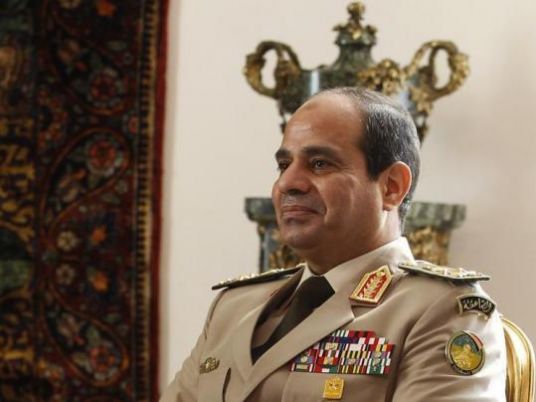
Prime Minister Hazem El-Beblawy has announced his cabinet’s resignation on Monday, according to an official statement aired on the state-run TV. Many analysts have interpreted the move as a prelude to Field Marshal Abdel Fattah el-Sisi officially running for presidency.
Though many were expecting a cabinet reshuffle prior to Sisi's candidacy, the extent of the changes to many were a shock, sparking a wave of speculation amongst political figures and parties as they began to guess the hidden intentions.
“The government resignation has now stirred controversy over the real reasons behind [the move],” said Ahmed Imam, the Strong Egypt Part spokesperson. “Maybe it’s a move to pave the way of presidency to Sisi to nominate, or due to the lack of trust in that government to resume until the coming presidential elections.”
Abdel Ghaffar Shokr, head of the Social Popular Alliance Party, said that the decision was abrupt and he could not say whether it is correct or not. “We did anticipate a cabinet reshuffle of one or two ministers including Sisi to run for presidency, but we were caught off guard by the resignation of the whole government’s ministers,” he noted.
Shokr emphasized that it would be much better for Egypt if the cabinet that came into power following 30 June uprising had continued their work until the presidential election, especially that they are familiar with the troubles of each sector.
Head of Social Democrats Party Abu El Ghar said that although the cabinet reshuffle is surely in preparation for Sisi's presidency, it could have also been influenced by the latest nationwide worker protests. Nonetheless, he believes that this decision will not affect the current turbulent situation in Egypt. “It’s a suitable way to leave post as Defense Minister,” he said.
“Unfortunately Beblawy did not give a full vision to disclose the reasons for the resignation which may weigh on the street confusion,” said Imam.
Imam added that undoubtedly the government was a “big failure” which used suppression to curb opponents; moreover its performance was socially and economically fruitless.
Meanwhile, Beblawy defended the move along with the work of the government. “The cabinet sincerely and accurately endured the responsibility, I believe it achieved good results, but like any project it achieves no complete success,” Beblawy said.
Beblawy emphasized that the government had accepted the positions not because they are the “best qualified figures“ but to prove it bore responsibility during a critical time, exerting their utmost effort to get Egypt out from a “narrow dark tunnel.”
Beblawy’s cabinet came to office in a political upheaval, starting with the ouster by the armed forces of Egypt's first democratically-elected President Mohamed Morsy, who affiliated to the Muslim Brotherhood, on 3 July.
Speaking to CBC, a privately-owned channel, George Isaac a member of the National Council for Human Rights, said Beblawy did not disclose the reasons for his resignation, saying that Egypt needs a Prime Minister who knows the mission of the government and announce his plans before accepting him.
Isaac stressed that there should be an agenda for the next government, along with an economic vision. “The current period is very acute, and the coming government should put short-term strategies to control the prevailing chaos,” he said.
Some political figures are more forgiving of the abrupt resignation. “Despite most of people who criticized the performance of the cabinet, I deeply hail their good job during this critical time,” Shokr said.
In the meantime, Interior Minister Mohamed Ibrahim told Al-Masry Al-Youm that he will resume his work until formation of the new cabinet, which is scheduled to be announced later in the day on Monday.




